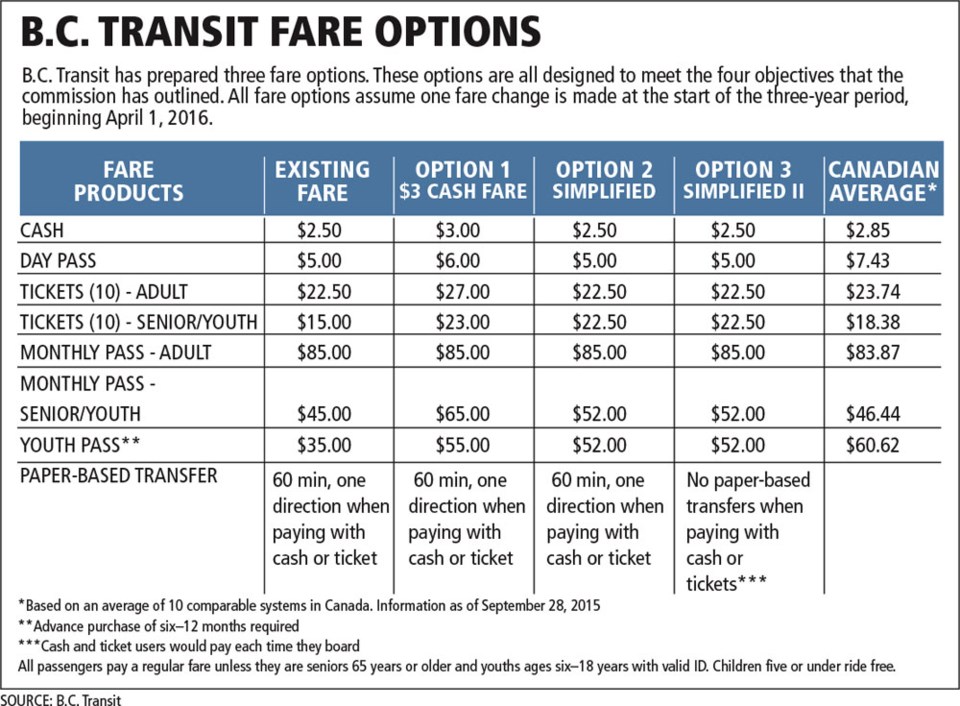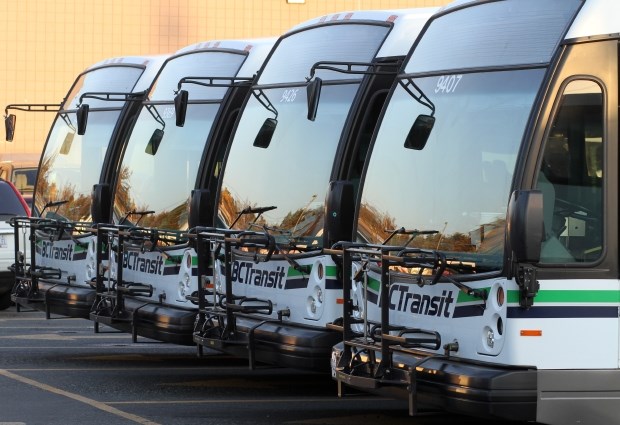B.C. Transit cash fares jumping 20 per cent to $3? No more discounts on monthly transit passes for seniors and youth? Goodbye to paper transfers?
B.C. Transit is reviewing its “fare strategy” to better balance rider revenues with operation costs and is seeking public feedback on three options:
• Option 1: $2.50 cash fare increases to $3; monthly youth and seniors passes increase to $65; day passes increase to $6. A $3 fare or $2.70 ticket would allow a one-way transfer, good for 60 minutes.
• Option 2: Cash fare stays at $2.50 but senior and youth passes go up by $7 per month to $52. A sheet of 10 tickets for seniors and youth would increase to $22.50 to match the regular adult price.
• Option 3: No more youth and senior discount fares, already the case in Calgary and Saskatoon, eliminating the need for operators to “visually verify, as best they can, that the pass-holder is a youth or a senior,” said B.C. Transit spokesman Mike Russell. Patrons would have to pay to ride every time they got on a bus — there would be no transfers.
Adult monthly passes would stay at $85 in all three scenarios, but many other fares would rise. The $35 monthly youth passes purchased by middle and high school students would increase to as much as $55.
Fares cover 27 per cent of the $32.4-million cost of running Greater Victoria’s transit system, which provides 25 million rides a year, Russell said.
The challenge is reconciling the desire for more passengers and better service with higher fares, said Susan Brice, chairwoman of the Greater Victoria Transit Commission.
“[It’s] finding the option that will be attractive to our customers and increase ridership while realistically meeting the increased costs faced in operating the transit service,” she said. “We want to make the transit option affordable and at the same time make the investments that ensure frequency and reliability.”
Only two per cent of trips — about 2,000 of the 100,000 each weekday — involve transfers, but the pieces of paper “are the No. 1 cause of conflict,” said Russell, citing disagreements over expired transfers or the use of a one-way transfer for a round trip.
Fare reviews are undertaken every three years. The transit commission wants fares that are fair, easy to understand and promote, and that improve boarding times through pre-paid products such as tickets and passes.
“There is a lot of infrastructure needed to properly handle and account for cash [at the farebox],” Russell said. Pre-paid products streamline that process, he said, and save the system money.
The Victoria Regional Transit Commission will meet in December to review survey results and decide on an option. Changes will go into effect in April.




